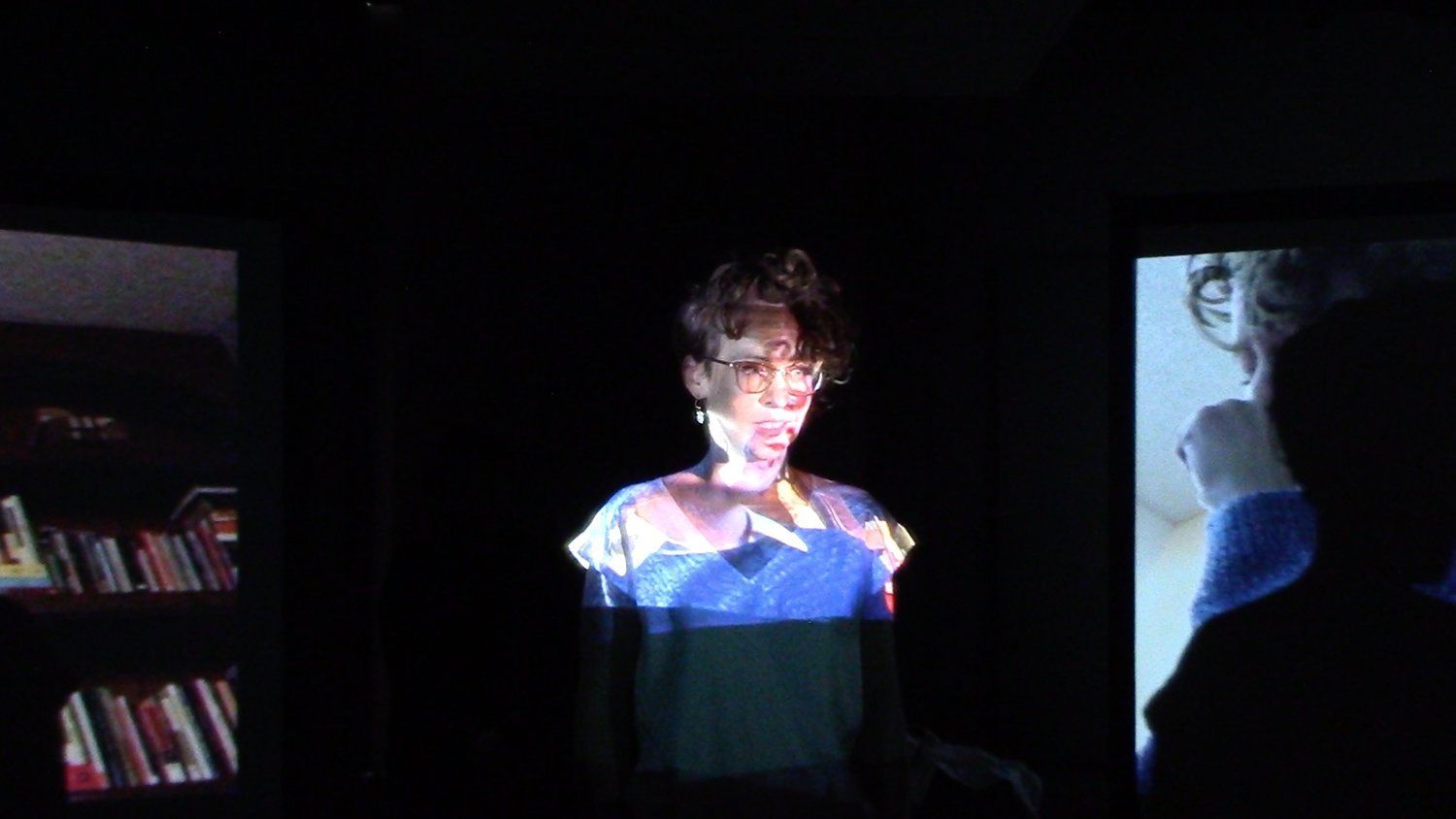perFORMing: My Part?
Many of us struggle to own our individual emotionality. We often tell others that it’s okay to not be okay all the time, meanwhile clutching the mask of calm competency ever closer to our own faces.
perFORMing: My Part was an immersive experience which asked participants to identify their own weaknesses—and the masks that are used to hide them.
One of the first lessons I recall learning was to never allow anyone to see your weakness. When thrown from a horse, roll to a stand to avoid getting stepped on; when dealing with animals of any sort—especially with dangerous ones—performing dominance is the best defense. When I entered the teaching profession, the performance of strength aided me; I was merely three to four years older than my students, and when in my second year of teaching a student pulled a knife in my classroom, I was able to talk him down effectively. I have long identified as a fighter, as someone who—although small—rises to meet the largest of challenges. But, this semester, Goffman called me out.
Goffman: “Performers may even attempt to give the impression that their present poise and proficiency are something they have always had and that they have never had to fumble their way through a learning period” (56).
Amanda Rose: I take pride in my ability to remain calm during emergencies, to hide my weakness. It’s who I am!
Goffman: Is it the essence of you, or simply the routine that you present as being your only/most essential routine?
Then in the span of a week Echo died, Brandon was diagnosed, and my godmother’s cancer returned. The first written remained the only concern I mentioned; I strove to continue hiding my weakness, performing my proficiency, and concealing the weakness that seemed incompatible with the ideal self I wished to present. When I wanted to reach out and seek help, I couldn’t bring myself to do so. I was being watched, it seemed, and I needed to behave appropriately. Foucault entered our conversation.
Amanda Rose: My routine is who I am. I am strong; I’m not small. I can continue, I can rise to the challenge, and in conquering my weakness, I can thrive.
Foucault: Or… have you integrated horizontal and lateral surveillance into your own unconscious? Are you moderating your behavior, disciplining your emotions to conform to the normalized functioning of the mechanism in which you exist, so that you will not raise suspicion that something is wrong?
Amanda Rose: Nothing’s wrong. Life is difficult, but I can do this. Giving up would be shameful. I can’t do that.
Foucault: Like I said.
Amanda Rose: Wait, What?
Throughout this semester, I have conversed with multiple theorists—sometimes, with the same theorist regarding radical pedagogy and regarding performance studies simultaneously. I have been challenged to rethink my positionality as an artist, as a scholar, and as a human, struggling—yes, struggling—to survive in the world while learning to attempt to peel up the veneer of proficiency under which I have performed for so long. And then Bryony Kimmings entered the conversation, in real life, face-to-face. She asked if I ever feel like I’m playing a part in my life, and challenged me to stop. Her ten-hour masterclass prompted me to attempt to—despite my trepidation—approach autobiographical material. Her own hour-long autobiographical performance explored what she labels as her “year of insanity,” in which she struggled through a diagnosable mental break. Her performance expressed this so-called insanity through metaphor as she performed the roles of mother, wife, lover, savior, and victim. Artists have the opportunity to surprise our audiences, Bryony says, when we are boldly ourselves. She also emphasized the value of allowing an audience to enhance our work with their own understanding, saying that we invite the audience to do so through the use of metaphor.
Suddenly, my synapses connected and cemented an understanding of the material I had been struggling with throughout the semester. Performance Studies, as evidenced by the discipline’s multiple genealogies, is a field—flat and sprawling, with no panoptic center—characterized by an ecology of uncertainties. We gather in this field to harvest these questions, because they are fruitful; by collecting them, we can sow new understandings. Uncertainties, when rooted in the field of Performance Studies, lead us to deeper interactions with philosophers, theorists, and artists—even those from other fields—which enrich our individual thought processes, artistic practices, and scholarly pursuits. Although I have sometimes felt that I am standing in a barren hole that confusion seeks to bury me in, if I sow and tend to my uncertainties, I can change the landscape in which I am living by allowing them to grow into new discoveries.






